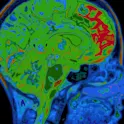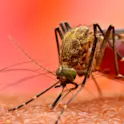
Health
02 Mar 2023
Sleep too much or too little and you might get sick more, scientists find
by Angharad Brewer Gillham, Frontiers science writer Image/Shutterstock.com Patients visiting their GP who reported sleeping less than six hours or more than nine were more likely to present with an infection. Patients who reported sleeping too little, or having insomnia or a chronic sleep disorder, were even more likely to need antibiotics. Scientists say that good sleep could lower our risk of infection and need for antibiotics. A good night’s sleep can solve all sorts of problems – but scientists have now discovered new evidence that sleeping well may make you less vulnerable to infection. Scientists at the University of Bergen recruited medical students working in doctors’ surgeries to hand out short questionnaires to patients, asking about sleep quality and recent infections. They found that patients who reported sleeping too little or too much were more likely also to report a recent infection, and patients who experienced chronic sleep problems were more likely to report needing antibiotics. “Most previous observational studies have looked at the association between sleep and infection in a sample of the general population,” said Dr Ingeborg Forthun, corresponding author of the study published in Frontiers in Psychiatry. “We wanted to assess this association among patients in […]













